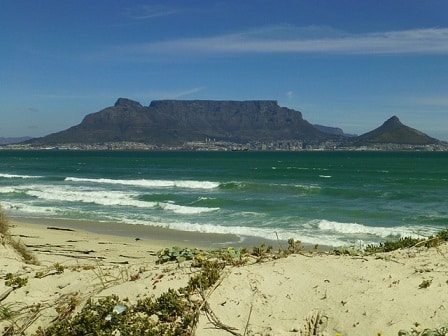
Currently around 1.2 billion individuals live in areas where there is physical water scarcity, while another 1.6 billion face what can be called economic water shortage. These shortages and degradation of quality have led to the highlighting of the urgency of the global water crisis and the necessity of government ministers to take action.
Is South Africa Adequately Addressing its Water Scarcity Problem?
While the public and private sectors do not always see eye to eye, in South Africa, where low rainfall and limited underground aquifers have meant the need for importing water from neighbouring countries, collaboration has become a necessity.
Current trends of inefficient usage, leakage and wetland destruction coupled with an increasing demand for water from agriculture, industry and growing urban centres mean that there will be a projected water supply-demand gap of approximately 17% by 2030.
The South Africa Strategic Water Partners Network (SWPN), a partnership between the Department of Water Affairs (DWA) and 2030 Water Resources Group (WRG) are collaborating with businesses such as Sasol, SABMiller, and Coca-Cola to address three priorities: reducing water use in the agricultural supply chain; reducing leakage and improving the efficiency of water use; and creating partnerships to treat effluent.
While public and private partnerships are doing a lot to address the problems, is it enough? The Emfuleni Local Municipality loses 44% of its water annually, and SABMiller’s net water footprint is about 511,100m litres; — 95% of which is associated with growing crops.
While local governments and the Water Futures Partnership is doing much to mitigate the water scarcity problem, and Sasol is also doing its bit, there are currently areas of South Africa that are experiencing water scarcity due to misuse, corruption, negligent maintenance and droughts and this is affecting the agricultural section very badly, which has decreased exports and increased local food prices substantially.
There have also been areas that have been without water for weeks at a time and the very possible threat of water restrictions in the near future, which again begs the question, “Is South Africa adequately addressing its water scarcity problem?â€
Rent water coolers in London from Living-Water. Buy bottled water coolers and main fed water coolers.





